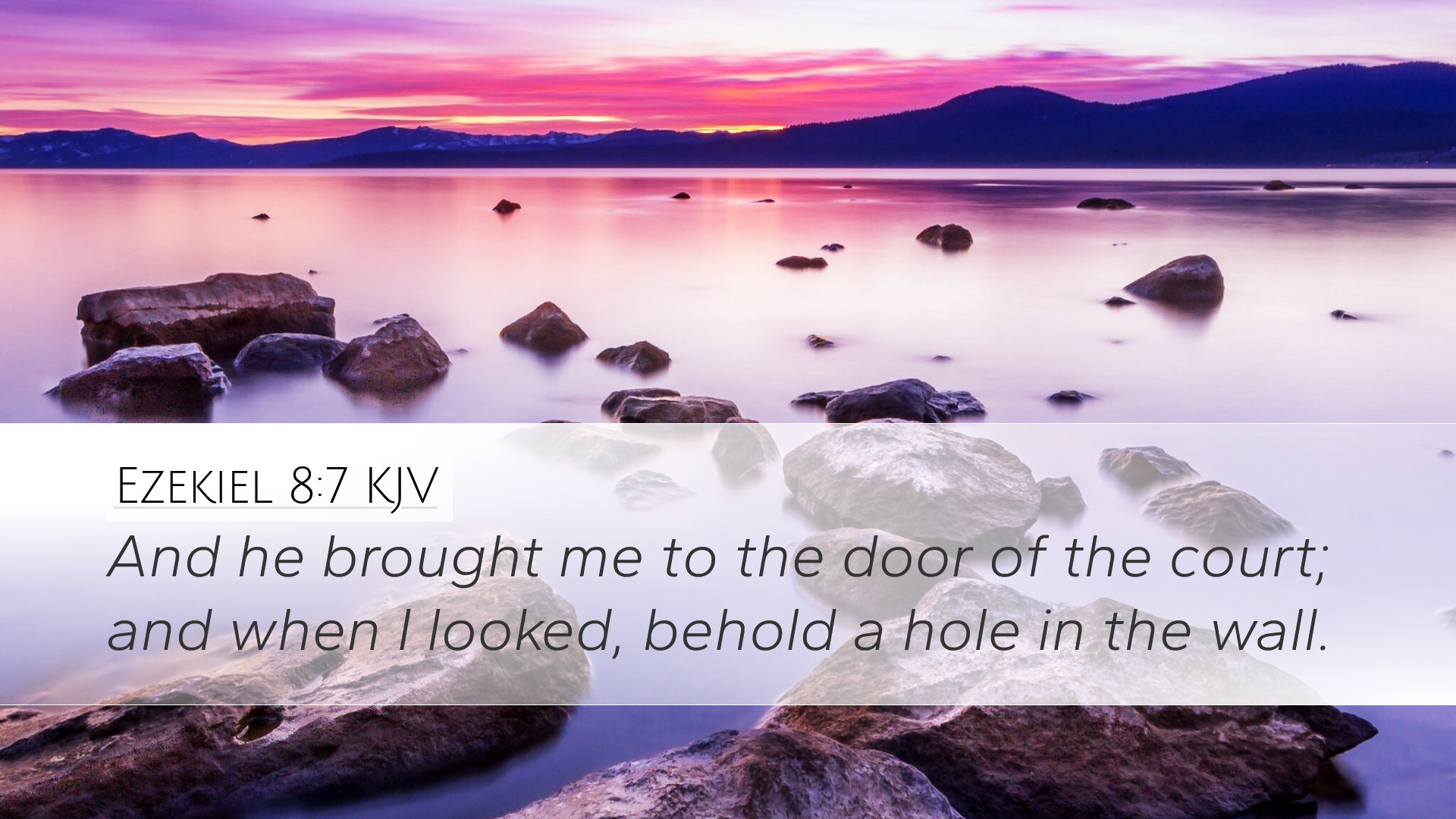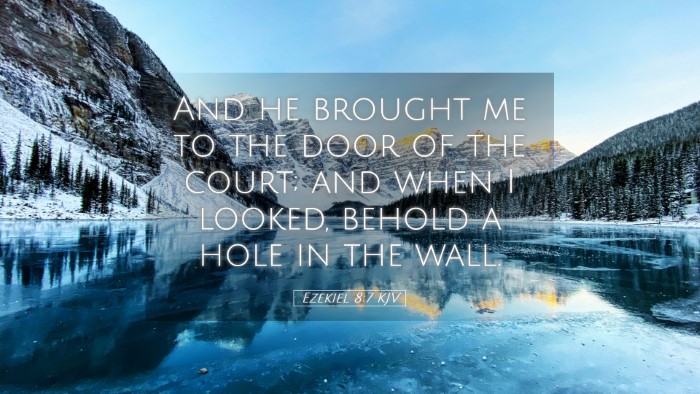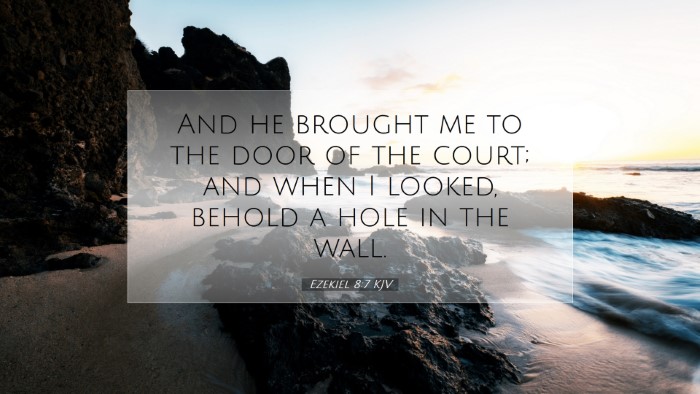Ezekiel 8:7 Commentary
Bible Verse: "And he brought me to the door of the court; and when I looked, behold a hole in the wall."
Introduction
The vision of Ezekiel, as recorded in the eighth chapter, serves as a powerful indictment of the spiritual state of Jerusalem and its people. This commentary seeks to explore the depth of meaning behind Ezekiel 8:7 through the insights of esteemed public domain scholars such as Matthew Henry, Albert Barnes, and Adam Clarke.
Contextual Analysis
Ezekiel is a prophet in exile, given divine revelations concerning the sins of Israel. In this particular chapter, he is transported in a vision to the temple in Jerusalem, where he witnesses the abominations taking place within the sacred space. Understanding this verse necessitates a grasp of both the immediate and broader context of Ezekiel’s prophetic mission.
Historical Background
The historical backdrop of Ezekiel's ministry occurred during a time of great turmoil for the Israelites, who faced destruction due to their disobedience to God. Matthew Henry notes that Ezekiel’s visions are crucial for understanding the gravity of their situation, highlighting that the temple was meant to be a place of holiness but had become a den of iniquity.
Verse Breakdown
Spiritual Significance of "the door of the court"
Ezekiel is led to "the door of the court," symbolizing a threshold between the holy and the common. Albert Barnes elaborates on this point, emphasizing that the doorway represents access to the sacred areas of worship. It indicates the people's approach to God, and what he finds there reveals chilling truths about their worship practices.
The "hole in the wall"
The discovery of the "hole in the wall" signifies a breach of sanctity. Adam Clarke suggests this hole represents hidden corruption that must be addressed. The metaphor of a wall being breached speaks to the vulnerability of the people to sin and idolatry that has infiltrated the worship of Yahweh.
Thematic Implications
Sins of Worship
This passage begins to unveil the various forms of idolatry and wickedness exercised by the leaders and the people. The act of peering through the hole in the wall reflects the need for self-examination among believers regarding their own hearts and practices. Henry comments that the practice of secret sins must be brought into the light for repentance and reformation.
Divine Revelation and Accountability
Ezekiel's vision is a reminder of God's omniscience; nothing is hidden from His sight. As the prophet witnesses the abominations, it calls to mind the accountability that leaders and the faithful have before God. Barnes points out that divine revelation often confronts the believer with the reality of their situation, urging them to acknowledge and rectify their wrongdoings.
The Call to Repentance
In light of the discoveries made by Ezekiel, the essential message of this verse is a call to repentance. Clarke posits that upon recognizing the breach of holiness, the people are to turn back to God with sincere hearts. The act of being brought to see the truth is both a gift and a responsibility.
Role of the Prophet
Ezekiel as a prophet plays a significant role in bringing God’s truth to the people. His vision is not merely for his own understanding but serves as a forewarning to Israel. Henry discusses how the prophet acts as a watchman, tasked with the duty to sound the alarm of spiritual danger, encouraging leaders and followers alike to return to the path of righteousness.
Conclusion
Ezekiel 8:7 is a profound verse filled with implications for worship, accountability, and repentance. The insights provided by Henry, Barnes, and Clarke shed light on the seriousness of the spiritual condition of God’s people and the urgent need for reform. For pastors, theologians, and students of Scripture, this verse serves as both a cautionary tale and an invitation to deeper introspection on the state of one’s heart before God.
Reflection Questions
- What areas of our worship practices may need re-evaluation in light of this verse?
- How can we guard against hidden sins within our communities of faith?
- In what ways is God calling us to a deeper accountability as witnesses of His truth?


